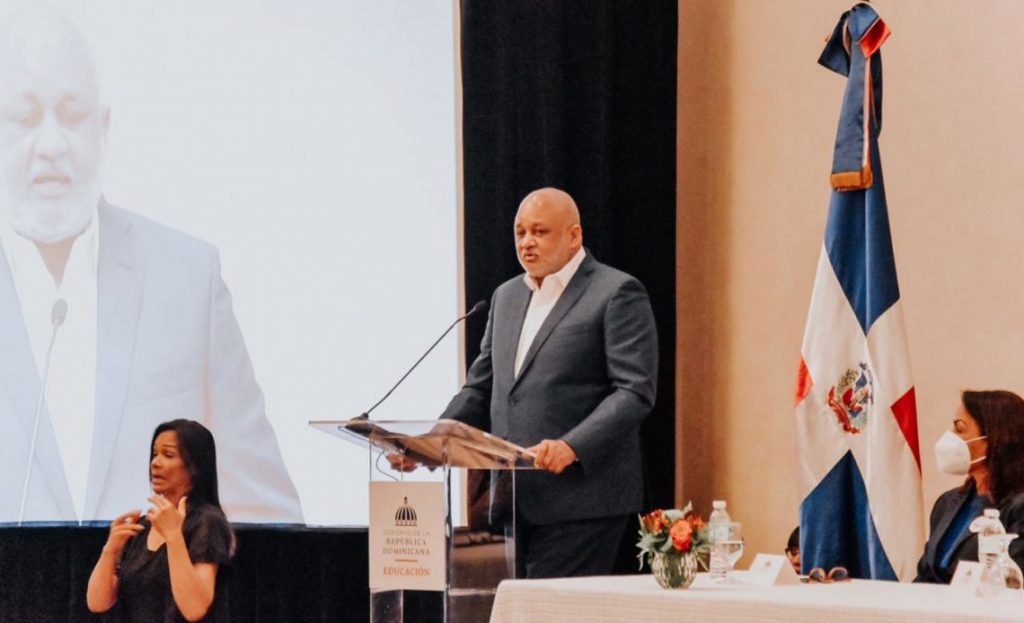
The Ministry of Education says it will present “next week” the timeline for the return to in-person learning. Parent associations, non-profit education organizations and private schools have been urging the government to authorize the return to classrooms in a gradual, voluntary and safe way, as has been occurring all around the world. The Dominican Republic is now one of the few countries where the government does not authorize in-person learning. Many schools say they are ready and should not be held back. They argue the mental health of students is at risk.
After a meeting with the National Education Council, Education Minister Roberto Fulcar said on Wednesday, 24 February 2021 that together with the Ministry of Public Health, next week they would announce the timeline and the return to in-person learning protocols.
While the meeting was taking place, parents’ associations picketed the Ministry, demanding that schools reopen. The parents associations complain the Ministry has refused to meet with them. They speculate the Ministry has not had the reopening of the schools on its agenda, given the big investment that has been made in distance learning programs.
In the Dominican Republic almost all sectors are back to the new normal, under safety protocols. Education is one of the few exceptions.
The Ministry of Education has invested billions in purchasing laptops and tablets for public school students and developing distance learning programs for radio, TV and the Internet. Yet, parents, private schools and non-profit education organizations want to hear when schools will be allowed to again receive their students.
Parents organizations complain the authorities do not receive them at the Ministry, and their communications have not been responded to. They say they have been requesting opening of dialogue since September 2021. Hundreds of private schools say they are fitted for reopening and only await clearance from the government.
While the positivity rate nationwide is at around 13%, it is well below 5% in most provinces. Minister of Public Health Plutarco Arias had said early on schools could resume where the positivity rate was under 10%.
On the island of Hispaniola, Haiti has its schools open. Haiti has one of the lowest rates of spread in the world. This is the same for the provinces on the border of Haiti. Experts attribute the low spread to the widespread use of the tuberculosis vaccine and regular use of ivermectin that has increased the immunity of those who live on the border.
In the United States, where the disease is more widespread and has reported five times more deaths per 1M than the Dominican Republic, the Center for Disease Control advocates for the return to school. The CDC bases its recommendation for school openings on studies published in December 2020 that indicate that masking, social distancing, hand-washing, adequate ventilation and contact tracing can make the return to the classroom doable. The CDC says that there Covid rates in counties where in-person education is available is similar to communities where only distance learning is allowed.
Follow the story in Spanish:
N Digital
24 February 2021

